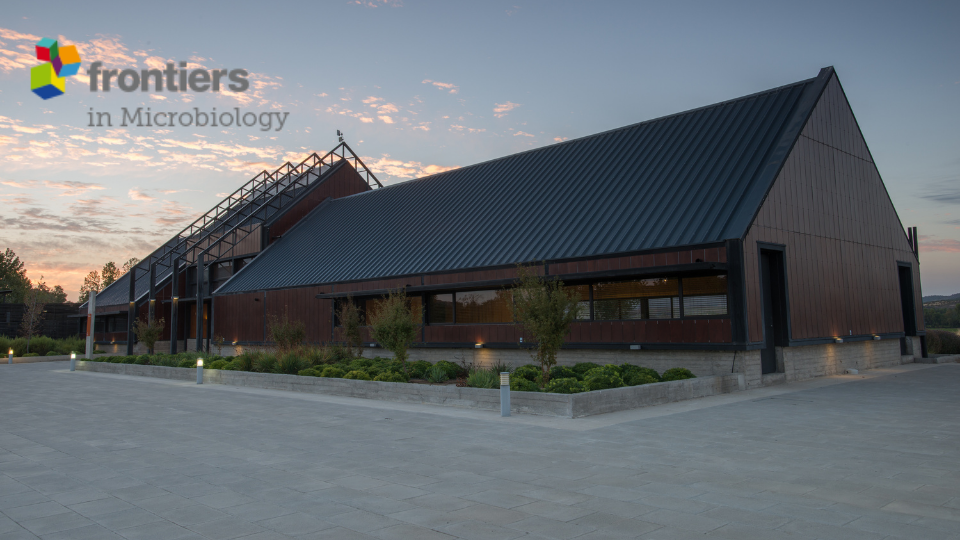- Innovation
- March 10th, 2022
CRI collaborates in article published in Frontiers in Microbiology
The leading international scientific journal included a comprehensive review of the application of mycorrhizal fungi in Chilean vineyards in its Microbe and Virus Interactions with Plants specialty section.
At the beginning of March, leading scientific journal Frontiers in Microbiology published a specialty section titled “Microbe and Virus Interactions with Plants”, which included an article produced by Viña Concha y Toro, Universidad de la Frontera, Universidad Católica del Maule, Universidad Católica de Valparaíso, Universidad Católica de Temuco, University of Pisa, and the Regional Research and Innovation Center for Sustainability of Agriculture and Rural Territories (CERES).
This public-private partnership aimed to specify the current challenges for Chilean winemaking in relation to climate change, and how the use of mycorrhizal fungi could help to mitigate its effects. Viña Concha y Toro’s Center for Research and Innovation (CRI) contributed to the article through applied trials on how to use mycorrhizal fungi as a biotechnological tool for winemaking. Mycorrhizal fungi are beneficial for grapevines, aiding their growth and improving soil quality, which makes production processes more sustainable.
Frontiers in Microbiology is published by Frontiers, the world’s third-most-cited and ninth-largest research publisher, and is highly influential among the scientific community. “This article reflects Viña Concha y Toro’s commitment to more sustainable agriculture, and positions the CRI at the cutting-edge of research and development. It is also the first article published that includes all information from Chile on this subject, and will be used as a basis to produce more specific publications on the field trials”, said Felipe Gainza, the CRI’s Leader of R&D&I in Molecular Biology, one of the article’s co-authors.
Since 2018, the CRI has worked together with Myconativa to assess the use of mycorrhizal fungi as a biostimulant for grapevines, and in 2021 the two institutions entered into a co-development agreement to promote new applications of this technology for the Chilean and international wine industry.
To read the full article, titled “Application of Arbuscular Mycorrhizal Fungi in Vineyards: Water and Biotic Stress Under a Climate Change Scenario: New Challenge for Chilean Grapevine Crop”, click here.



